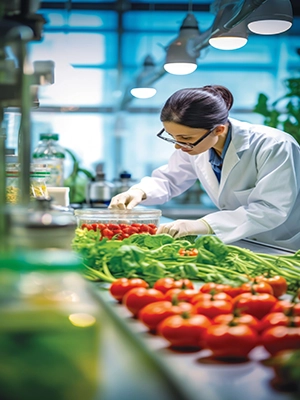

Ensuring Food Safety with Standards and Best Practices
Food safety is a non-negotiable part of life as human health is one of the most important requirements. Food-related illness, sickness, and death not only have a huge cost to individuals and society but also result in suffering. Food safety covers food production, food processing, food storage, food preparation, and food consumption. At all these stages in the farm-to-fork cycle, there are possibilities for contamination to occur which is due to physical, biological, and chemical contaminants. Adequate attention, controls, and a risk management approach prevent such contaminants that render the food unsafe. Most countries have legal and regulatory requirements to ensure food safety.
The best practices to ensure food safety include a formal systems-based approach, widely available in time-tested food safety standards such as ISO 22000, FSSC, BRC, Global GAP, and IFS. In addition, some schemes have emerged that provide specific assurance to requirements such as Halal, Kosher, Organic, Gluten Free, etc. With heightened awareness stemming from recent high-profile food incidents and recalls, consumers, are demanding an increase in food safety throughout the supply chain. Consumers expect to be assured of the food quality and hence rely on independent certification to various schemes. Those businesses that are certified to a food safety standard, or inspected to a particular food safety scheme will gain the trust of the consumers and enjoy a competitive advantage.
Benefits
- Build and improve consumers’ trust and confidence.
- Implement appropriate controls to mitigate risks and hazards and thus ensure safe food.
- Demonstrate compliance with legal and regulatory requirements.
- Reduce the risk of food safety incidents.
- Create a food safety culture.
Our Solutions
Certification
- ISO 22000
- FSSC 22000
- HACCP
- BRC
- FSSAI Audits
- ISO 9001
Audit
- FSSAI Audits (High-Risk Manufacturing, Eat Right Campus, Eat Right School, BHOG, Clean Street Food Hub, Clean Fruit and Vegetable Market)
- Second Party Audits
- FDA Audits
Inspection
- Bureau of Indian Standards Factory Surveillance
For any queries or further information related to our services, please feel free to contact us at info@qacamail.com or call us at +919599619392. We are here to assist you!





